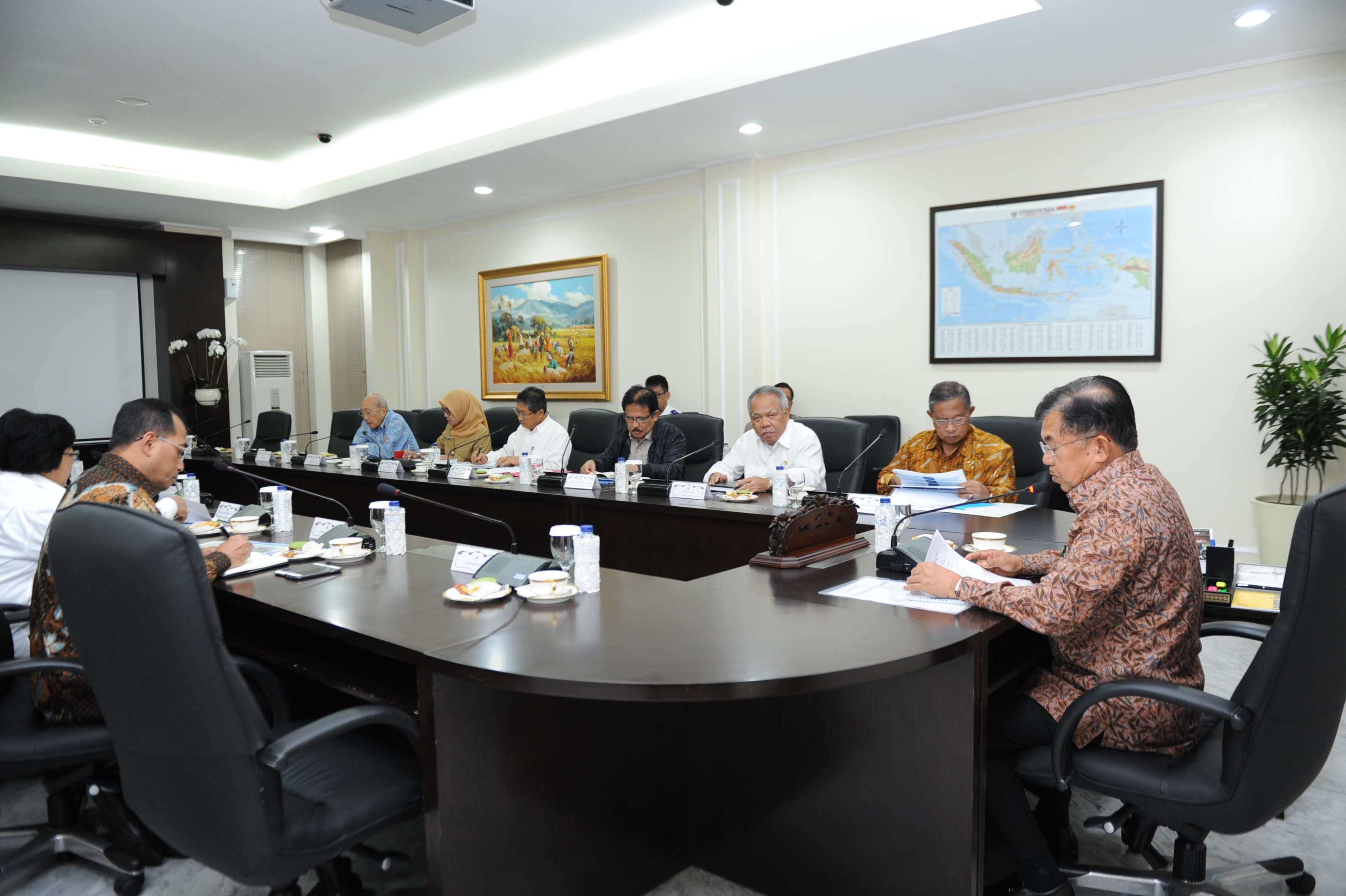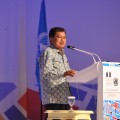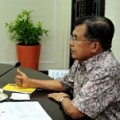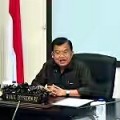Jakarta-wapresri.go.id Vice President Jusuf Kalla led a follow-up meeting on Government Regulation (PP) No. 64 of 2016 on Housing for Low-Income People (MBR) in the Office of the Vice President on Jalan Merdeka Utara, Jakarta, Monday (Feb. 13).
In the meeting attended by Coordinating Minister for Economic Affairs Darmin Nasution, Minister of Public Works and Public Housing Basuki Hadimuljono, Minister of Transportation Budi Karya Sumadi, Minister of Agrarian and Spatial Planning Affairs Sofyan Djalil, Minister of Environment and Forestry Siti Nurbaya, state-owned lender Bank Tabungan Negara (BTN) CEO Maryono, and representatives of related ministries and institutions, the Vice President asserted that this meeting is to speed up the implementation of the government regulation in an attempt to reduce inequality.
“Reducing inequalities is very important. Every day we watch luxurious housing and apartment advertised, yet at the same time housing for low-income people is hard to build. This surely becomes our concerns,” said the Vice President.
The Vice President further said, government has provided a budget of 9.7 trillion rupiah for housing finance, but the amount is not yet commensurate with the needs.
The government, he added, had also requested the Workers Social Security Agency (BPJS Ketenagakerjaan) help finance as much as 40 trillion rupiah, but it has not disbursed the fund due to many constraints, while the budget provided by the government-backed mortgage scheme (FLPP) today has only amounted to 19 trillion rupiah.
The Vice President added that the housing problem generally occurs in urban areas due to the increasing population as a result of continued urbanization. Based on data, it is estimated that in 2020, 60 percent of people will live in urban areas.
“To slowdown urbanization, villages should be improved. It is even easier now to develop villages with the village funds provided by the government,” he said.
Earlier, Minister for Economic Affairs Darmin Nasution stated that the government has issued the 13th Policy Package on housing for MBR.
This policy package, according to him, is in line with other policies on equitable development. However, said Darmin, this package needs to be synchronized with other government regulations, such as Draft Government Regulation (RPP) on housing policy for MBR currently being prepared, which contains a provision stating that land for MBR housing, both in rural and urban areas, is an area of between 0.5 s.d. 5 ha.
To that end, Darmin asserted, in an effort to improve the equitable development, the government should establish land banks, which can be started by utilizing the lands belonging to state-owned enterprises (SOEs), such as lands owned by state-owned train operator PT. Kereta Api Indonesia (KAI) around train stations, lands owned by state-owned forestry firm Perum Perhutani, or those owned by state-run plantations firm PT. Perkebunan Nusantara proper to be used as settlement.
“The lands owned by SOEs can be used as lands for construction of flats to accommodate the urban population now living in slums. Afterwards, their ex-lands will be annexed by the government and used as a land bank with a proper compensation,” said Darmin.
In response, the Minister of Agrarian and Spatial Planning Affairs Sofyan Djalil stated that there is an urban sprawling phenomenon or irregular urban development in Jakarta.
In 2000, he said, urban areas in Jakarta were an area of 1,338 kilometer-square, while in 2016 it had increased to 3,225 kilometer-square. One of the solutions for this, according to him, is by urban renewal.
Sofyan explained that land in Kemayoran which is owned by state-owned house developer Perumnas can be used as a pilot project for urban renewal.
In the area, he said, there is a slum area of 14.4 hectares, and flats in an area of 8 hectares occupied by only 1,500 households.
“With the urban renewal program, there can be developed up to 40 apartment towers with 24 floors each, which will make up 20,000 residential units and can accommodate up to 80,000 people,” said Sofyan.
Meanwhile, Minister of Public Works and Publisc Housing Basuki Hadimuljono said, during two years he was in charge of MBR housing, licensing had been a major issue.
Currently, he added, Real Estate Indonesia (REI) has started to focus on building MBR housing, while BTN has already given a lot of support for this program.
Related to environmental license, Minister of Environment and Forestry Siti Nurbaya stated, it is stipulated in PP No. 64 of 2016 that the licensing requirements simply include a statement letter of environmental management and monitoring.
Siti added, in the near future her ministry will formulate a more detailed ministerial regulations on the implementation of the government regulation and will send circular letters on the matter to all regents and mayors throughout Indonesia.
Meanwhile, Transportation Minister Budi Karya Sumadi suggested that housing development should focus on areas around Jakarta such as Maja, Bojonggede, and Bekasi.
According to him, these areas have good prospects to accelerate the construction of MBR housing, since beside they are close to the commuter line access, the available lands are also relatively large.
In terms of financing, BTN CEO Maryono said, in supporting the housing program, banking industry is still facing challenges, particularly the poor ability of public fi
nancing.
Therefore, he continued, BTN constantly strives to provide convenience to the public by lowering mortgage rates.
“Currently, subsidized housing demand remains high, but many developers have not yet started working on subsidized housing due to complicated licensing process and high land prices,” said Maryono.







